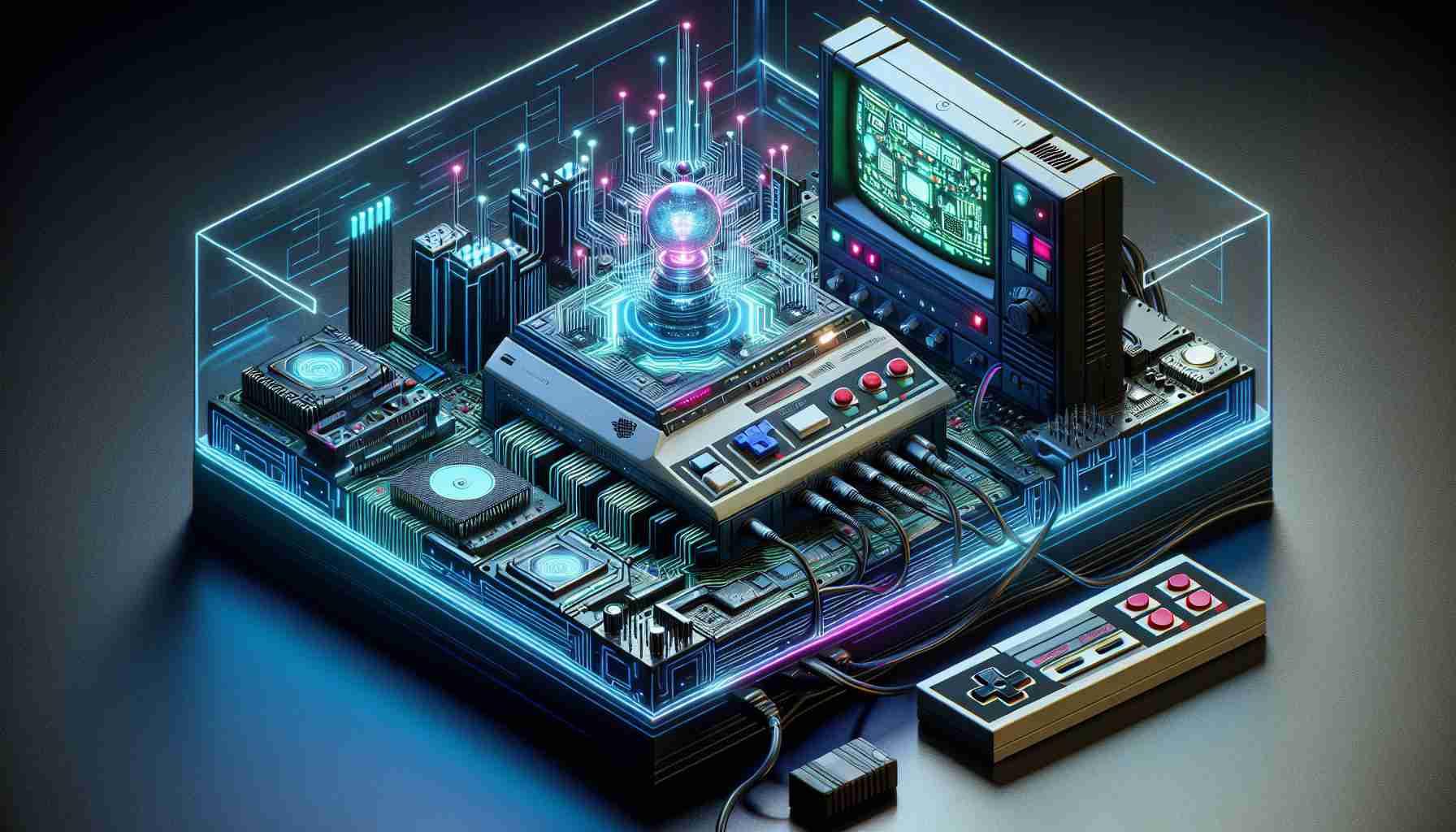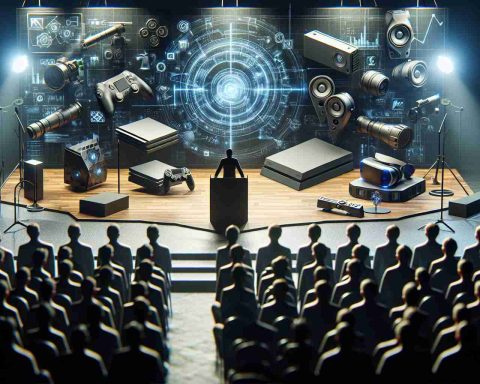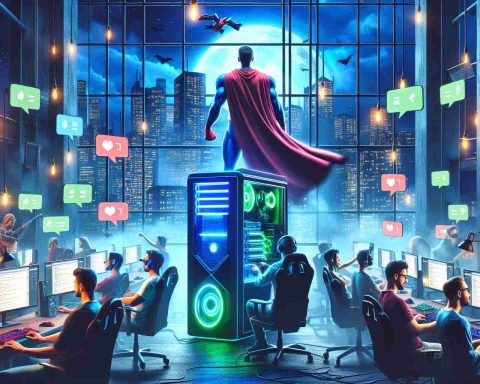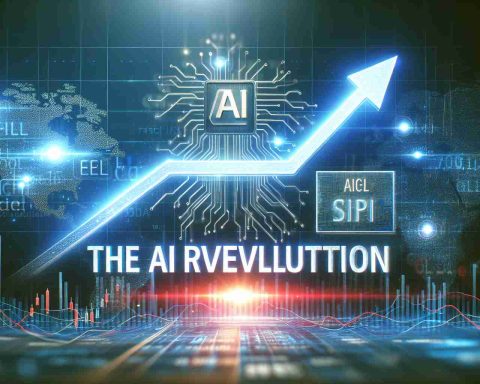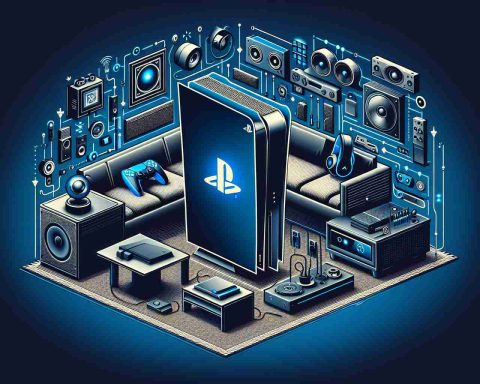In an unexpected twist of technological evolution, NVIDIA has announced its latest venture: the “NVIDIA NES” project—an ambitious initiative aimed at revitalizing beloved retro gaming experiences through cutting-edge AI. This announcement has left many tech enthusiasts and gamers intrigued, pondering the implications of merging modern-day processing power with classic game dynamics.
A Fusion of Nostalgia and Technology
The NVIDIA NES project seeks to leverage the company’s world-renowned AI capabilities to remaster classic Nintendo Entertainment System (NES) games. Through advanced algorithms, these games will experience enhanced graphics, dynamic adaptability, and intelligent NPC behavior, all while retaining their original nostalgic charm. Imagine playing “Super Mario Bros.” where the Goombas learn your strategies or unlockable AI-enhanced levels that offer unprecedented challenges.
Embracing Open Source
In an exciting move, NVIDIA has partnered with various open-source developers to make this bold vision a reality. The initiative encourages community contributions, leading to a vast repository of AI-enhanced mods, fostering innovation, and setting a new industry standard for collaborative game development.
Implications for the Future
Could this fusion mark a new era for the gaming industry? By updating nostalgic titles with advanced AI, NVIDIA not only breathes new life into classics but also opens the door for future platforms to integrate machine learning into gameplay. This move hints at a future where gaming is not only about high-end graphics but also intelligent, adaptable, and deeply interactive experiences. The NVIDIA NES might just be the nostalgic bridge to tomorrow’s gaming advancements.
The NVIDIA NES: Bridging Nostalgia and Future Technology
In an innovative leap forward, NVIDIA’s unveiling of the “NVIDIA NES” project stands as a testament to the dynamic interplay between cutting-edge technology and cherished nostalgia. By incorporating advanced AI into classic NES games, the initiative not only revives beloved gaming experiences but also sets the stage for future technological advancements. This intricate marriage of past and present has far-reaching implications not just for gaming, but for the environment, humanity, and the global economy at large.
Impact on the Environment:
Integrating AI into gaming, as seen in the NVIDIA NES project, may lead to significant environmental benefits in unforeseen ways. As gaming evolves to rely more heavily on AI and machine learning rather than solely on hardware improvements, there is potential to reduce the frequency and demand for new hardware production. This shift could mitigate electronic waste—a growing environmental concern—by extending the lifecycle of existing gaming equipment through software enhancements. Furthermore, AI algorithms that optimize processing efficiency could result in reduced energy consumption in gaming, thereby lessening the carbon footprint of the tech industry.
Effect on Humanity:
The integration of AI into gaming extends beyond entertainment, potentially influencing cognitive development and social interaction. With games becoming more adaptive and intelligent, players may encounter experiences that require sophisticated problem-solving and strategic thinking. This could lead to an enriched cognitive training ground for people of all ages, facilitating improved decision-making skills and cognitive flexibility. Additionally, AI-driven games could foster new forms of socialization, encouraging global communities to collaborate and innovate together in virtual settings, thus enhancing cultural exchange and mutual understanding.
Economic Implications:
The NVIDIA NES project signifies a paradigm shift in the economic landscape of the gaming industry. By embracing open-source collaborations, NVIDIA is promoting a democratization of game development, enabling more diverse contributions and innovations from independent developers. This inclusive model could invigorate the gaming market, leading to a rise in creative, niche products and perhaps even reshaping market dynamics to favor community-driven projects over traditional corporate ventures. As a result, economies that invest in technology and gaming industries may witness a surge in job opportunities and entrepreneurial ventures, fueling growth in the digital economy.
Connections to Humanity’s Future:
Looking beyond gaming, the NVIDIA NES initiative exemplifies the broader impact of AI in reshaping how humans interact with technology. As AI continues to permeate various sectors—from education to healthcare—the principles demonstrated by NVIDIA’s project could inform a future where technology is tailored to individual needs, preferences, and learning curves. By nurturing environments where humans and machines co-create experiences, these advancements hold promise for a future where technological engagement enhances rather than replaces human connection and creativity.
In essence, NVIDIA’s bold venture not only revives a cherished past but also paves a visionary path forward, illustrating the profound potential of AI to transform industries, societies, and the world.
NVIDIA NES: Revolutionizing Retro Gaming in the Age of AI
In a groundbreaking move for the gaming and technology sectors, NVIDIA’s announcement of the “NVIDIA NES” project has sparked intense curiosity among tech enthusiasts and gamers alike. This unique confluence of nostalgia and innovation promises to reinvent how classic Nintendo Entertainment System (NES) games are experienced by incorporating advanced artificial intelligence capabilities.
Enhanced Features and Capabilities
NVIDIA’s ambitious project is expected to transform retro gaming by leveraging AI to offer enhanced graphics and gameplay. Not only will players see visual improvements, but they will also encounter dynamic and intelligent behavior in non-playable characters (NPCs). The games will adapt in real-time, making legendary titles like “Super Mario Bros.” more challenging and unpredictable as characters learn and respond to player strategies. This approach promises to create a more immersive and engaging experience that transcends traditional gaming limits.
Tutorials: How to Get Started with NVIDIA NES
For those eager to dive into this AI-enhanced gaming world, understanding how to get started will be key. Installing the updates and patches provided by NVIDIA will be necessary to experience these enhancements. Additionally, players can join open-source communities to explore and possibly contribute to custom mods, further customizing their nostalgic journey.
Innovations and Industry Impact
The NVIDIA NES project is more than just a nostalgic nod to the past; it is a bold step towards the future of gaming. By integrating AI into classic titles, NVIDIA sets a precedent for the industry, hinting at future gaming innovations where machine learning enhances user interaction and game dynamics. This development could lead to a paradigm shift—an industry-wide adoption of AI to create more intelligent and personalized gaming experiences.
Market Analysis and Future Predictions
With its innovative approach, NVIDIA’s NES project may attract a wide demographic, from older gamers reliving their childhood to younger players curious about retro games with a modern twist. This could potentially revitalize the retro gaming market, driving demand for similar projects. Analysts predict increased collaboration between AI companies and gaming developers, ushering in an era where AI becomes integral to game development processes.
Security and Sustainability Considerations
As with any AI-driven project, security is paramount. NVIDIA is expected to implement robust security measures to protect both the games and user data from potential breaches. Moreover, the project’s open-source aspect allows for community oversight, further enhancing security through collective vigilance. Sustainability-wise, embracing open-source models encourages resource-sharing and minimizes environmental impact, aligning with broader industry trends toward eco-friendly practices.
In conclusion, NVIDIA’s venture into classic gaming realm through the integration of AI not only breathes new life into beloved NES titles but also sets the stage for innovation within the gaming industry. Interested users can learn more about NVIDIA’s groundbreaking projects by visiting the NVIDIA website.

